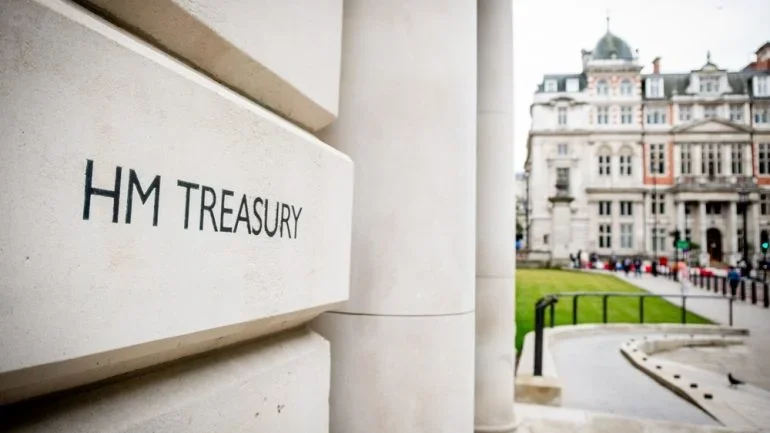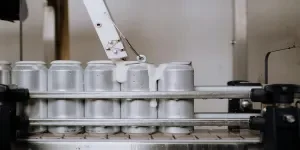By implementing EPR and revising the PPT, the government seeks to foster recycling and decrease landfill usage.

The latest Budget has unveiled significant reforms aimed at improving waste management and recycling practices in the UK.
However, industry leaders are expressing concerns that the proposed funding and policies may not adequately address the challenges faced by local authorities and waste management sectors.
Funding and EPR concerns
The government is introducing Extended Producer Responsibility (EPR) and updating the Plastic Packaging Tax (PPT) in an effort to boost recycling rates and reduce reliance on landfills.
According to the Treasury, local authorities are set to receive around £1.1 billion of new funding in 2025-26 through the implementation of the EPR scheme.
However, the Local Government Association (LGA) has warned that payments from the EPR “are unlikely to cover the extra costs that arise when households put recyclable waste in the wrong bin,” which places additional financial pressure on councils.
The North London Waste Authority has echoed these concerns, stating that the “revised base fees for EPR are too low” and will negatively impact the finances of local authorities.
This backdrop of concern was highlighted in the context of Rachel Reeves delivering the first Budget by a female Chancellor, alongside Labour’s first Budget in fourteen years.
Changes to plastic Packaging Tax
Among the significant announcements, the government confirmed that businesses will be permitted to use a mass balance approach to evidence recycled content in chemically recycled plastic for the PPT.
Jim Bligh, Director of Corporate Affairs and Packaging at the Food and Drink Federation, noted, “This decision was great news. Food and drink manufacturers want and need a circular economy for packaging recycling.”
He added that this change “will open up new markets for advanced recycling in the UK, creating green jobs and investment opportunities, while increasing the amount of recycled content used in food-grade packaging.”
The PPT rate for 2025-26 will also increase in line with CPI inflation to incentivise businesses to use recycled materials rather than new plastic in packaging.
Biffa CEO Michael Topham welcomed the PPT decision but stated, “To deliver a step-change in demand for recycled plastic, a progressive PPT is essential.” He emphasised, “Biffa has campaigned for this change for years and we will continue to raise it with the government.”
However, Jacob Hayler, Executive Director of the ESA, expressed disappointment that the Treasury “ignored advice” to escalate the PPT over the next five years to £500 per tonne.
He stated, “This will continue to constrain markets for recycled plastic, which in turn will damage Labour’s circular economy ambitions.”
Hayler further explained that the current PPT levels “are not driving plastic recycling performance or creating markets for recycled polymers.”
Landfill tax and future implications
The Budget also confirmed adjustments to Landfill Tax rates from 1 April 2025, with future rates announced before subsequent fiscal events.
Dan Cooke, Director of Policy, Communications and External Affairs at the Chartered Institution of Wastes Management (CIWM), remarked, “The strong focus on measures incentivising net zero, clean energy and green infrastructure was expected and welcome.”
He noted that confirmation of support for carbon capture and storage (CCS) projects would “enable important CCS projects involving Energy-from-Waste plants to progress.”
However, former CIWM President Dr Adam Read MBE expressed disappointment that the waste and resources sector had been “largely overlooked” in the Budget.
He lamented, “The opportunity to inject some real momentum behind the government’s commitment to a zero-waste economy has been missed.” Read also highlighted a need for “policy clarity” on recycling reforms.
Sian Sutherland, Co-Founder of A Plastic Planet & Plastic Health Council, was critical of the investment in carbon capture technology, calling it a “fig leaf” for oil giants.
She stated, “Our government needs to decide who it is elected to protect – the profits of the fossil fuel giants or the healthy future of their citizens.” Sutherland warned that without stronger environmental policies, the UK could face “devastation that eclipses the 2008 financial crisis and the Covid-19 pandemic.”
As stakeholders react to the Budget’s implications, it is clear that balancing immediate financial constraints with long-term environmental goals remains a pressing challenge for the waste management and packaging sectors.
Source from Packaging Gateway
Disclaimer: The information set forth above is provided by packaging-gateway.com independently of Alibaba.com. Alibaba.com makes no representation and warranties as to the quality and reliability of the seller and products. Alibaba.com expressly disclaims any liability for breaches pertaining to the copyright of content.




